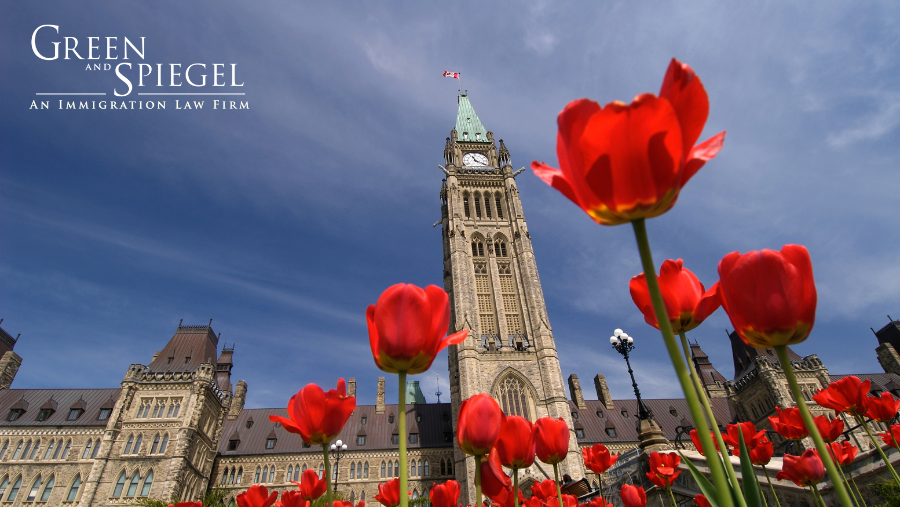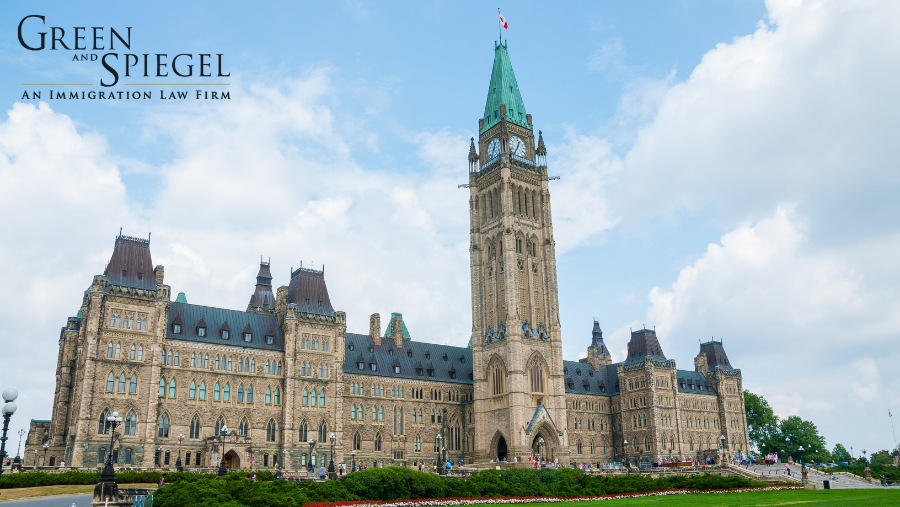
On June 27, 2023, then Immigration Minister Sean Fraser announced Canada’s first Tech Talent Strategy. The goal was to continue to attract individuals who have the vision and talent to establish Canada as a world leader in emerging technologies. One of the key features of the new strategy was changes to the Start-Up Visa (SUV) program, set to enter into force by the end of 2023 – you can find our blog last year providing a recap of the promised attraction measures under the Tech Talent Strategy.
As we are starting the second half of 2024, and the sun just set on the 2024 iteration of the Collision conferences in Canada, we have now completed a full calendar year since Immigration, Refugees and Citizenship Canada (IRCC) unveiled its commitment to a new SUV approach. Despite the recent update with the program’s operational guidelines at the end of April, the question still remains: where does the SUV currently stand in light of those entrepreneur-focused measures originally announced by former Minister Fraser during Collision 2023?
Update Regarding the Announced SUV Changes
The Organization for Economic Cooperation and Development (OECD) developed a tool in 2023 named Indicators of Talent Attractiveness (ITA) with the purpose of determining the advantages and disadvantages of member countries in their pursuit of enticing foreign talent. Since its inception, the ITA has been ranking Canada consistently as a top-tier destination for entrepreneurs and startups, primarily factoring in categories such as corporate tax rates, access to capital, quality of life, inclusiveness, potential opportunities for business, etc.
It was no surprise that changes to the SUV program were promised by the end of 2023 to further increase Canada’s appeal, better align the program with the realities of being an entrepreneur in a foreign country, and allow sufficient flexibility to bring a business vision to life.
However, following the official announcement with respect to the SUV program, Canada’s Tech Talent Strategy was not deployed by IRCC as quickly and thoroughly as anticipated in the immigration and startup communities, maintaining the status quo on most of the program’s requirements and halting the “aggressive attraction measures” previously presented by the Government. Let’s look more closely at each of the announced measures pertaining to the SUV that were to be enabled by December 2023, and their actual latest status:
- Increased quota: IRCC announced that the program was tripling its availability in 2023, from roughly 1,000 to approximately 3,500, with additional increases expected in 2024 and 2025.
-
- As per the 2024-2026 Canadian Immigration Levels Plan, the 2024 target for the SUV and Self-employed Persons programs altogether is 5,000, with an accepted high range of up to 7,000 new permanent residents through the programs. Although this measure is not an active incentive to attract foreign entrepreneurs nor a change in the program’s rules, it does reflect IRCC’s interest to open doors to talented and innovative businesspersons. Of course, in capping the number of permanent residence applications IRCC will accept for processing each year to no more than 10 start-ups per designated organization, it will be interesting to see in the long run if the ultimate impact is to simply maximize IRCC’s efficiency by avoiding any considerable backlog, or if it will decrease the permanent residents accepted through the program.
-
- Increased work permits’ validity: IRCC announced that the SUV-based work permits under the International Mobility Program (IMP) would now allow for longer-term business planning as the validity would be increased from one year to three years to match the approximate processing time for an SUV PR application, hence reducing the frequency of work permits’ renewal and decreasing the consequent fees.
-
- This measure was not yet enacted, as LMIA-exempt A77 work permit applications for SUV applicants remain limited to a single year of validity, as per IRCC’s operational instructions and guidelines. There have been occurrences of some SUV-based work permits issued for longer periods, such as three years, but those would unfortunately appear to have been fortunate administrative errors, rather than the actual increased validity measure being instigated.
-
- Work permits will be with open conditions: IRCC announced that the SUV-based work permits traditionally issued with closed conditions, hence tied to a specific business/employer and work location, will now be issued as open work permits, so without any restriction to work only for the startup being set up and developed in Canada. The flexibility in being permitted to work for any business/employer, and no longer solely for the startup business, was to allow the entrepreneur to also have the capacity to earn supplemental income from additional employment if needed, given the SUV PR processing time, but also to allow the business to easily restructure without any preoccupation to constantly be updating work permits.
-
- While some SUV work permits have erroneously been issued with open conditions, just like for the extended validity, the relaxed measure has not been implemented yet. This means that SUV applicants are therefore left with the obligation to continue to work exclusively on their startup business while in Canada with the work permit. It remains impossible, at the moment, for main applicants to have side occupations to generate some income while in Canada working at launching their innovative startup. Hopefully, the changes brought to the program in April will at least contribute to decreasing the average SUV PR application’s processing time, helping individuals with closed-conditions and short-validity work permits.
-
- Work permits will be available to the full entrepreneurial team: IRCC announced that SUV-based work permits would no longer be limited to the team members listed as “essential” in the Commitment Certificates and Letters of Support (LOS) issued by the designated organization, allowing for better team collaboration and invaluable timely contributions from various team members, as the business continues to expand and the need arises in Canada.
-
- By way of express email correspondence, IRCC’s Immigration Representatives have confirmed at a few occasions that it remained impossible to successfully apply for SUV-based work permits for team members deemed as non-essential on the team’s LOS given their habitual remote role. In other words, regardless of the justifications provided to the effect that some punctual and urgent needs arose for the team in Canada, as long as an entrepreneur is not listed as an essential member, it will not be possible to consider applying for an SUV work permit for the time being.
-
- Prioritized applications: IRCC announced that it will prioritize the processing of SUV PR applications supported by capital commitments from designated organizations, or backed by business incubators who are members of Canada’s Tech Network.
-
- The idea is of course to speed up the process for high-potential startups who may be at a relatively more advanced growth stage, and who have consequently secured some financial support. Such a prioritization system is now applied, as a result of the latest regulatory changes to the SUV program in April.
-
Uncertainty Surrounds SUV Measures as of Q3 2024
In the absence of any further steps taken by IRCC and the new Immigration Minister, Marc Miller, the future of the SUV measures introduced at Collision 2023 becomes questionable as we start Q3 of 2024. Referring to a March 2024 correspondence from IRCC, it was in fact confirmed that an implementation date for the promised changes to the SUV program was not yet available and therefore unlikely to occur in a near future.
While the Government of Canada continues its seduction mission towards foreign entrepreneurs and, as mentioned above, increases its entrepreneurial immigration quotas annually, it remains a mystery as to why the rest of the measures to make Canada more attractive are not being implemented as well. Since the goal is to help foreign businesses thrive in Canada, hence setting Canada further apart from the competition in terms of immigration policies for entrepreneurs, we are left wondering when these changes will take place. The absence of an update on Canada’s Tech Talent Strategy for SUV at Collision 2024 may however very well be the ominous sign that IRCC no longer plans on having the announced changes see the light of day.
To further discuss the SUV program’s requirements and your eligibility, please contact us.





